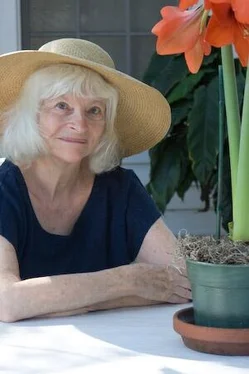Soon, perhaps tonight, there would have to be a painful scene in that house. But she wasn’t going to think about it now; she had a job to do. She propped one inflamed cheek on her hand, and tried to attend to the conversation. Dr. Smith and Dr. Haraki, with some assistance from Dr. Einsam, were talking now about the trouble a colleague called Dr. Jekyll was having with his dictaphone—a cheap, new model which he had purchased out of foolish economy and against their advice. This soon led into a continuation of last meeting’s argument about which tape recorder they should buy for field interviewing. Charlie Haraki favored the Moscowitz, which was sturdy, long-playing, and reliable. Bert Smith thought the Moscowitz was too bulky for field work. He wanted to try a new Japanese-made machine, the Kitano, which weighed only half as much and could be concealed in a coat pocket or handbag. However, it cost more, and had a recording capacity of only forty minutes. (This cultural reversal was not a freak, but typical. Dr. Smith’s cliffside apartment in Pacific Palisades was full of Japanese screens, silk pillows, and Oriental crockery; while Dr. Haraki lived in a split-level ranch house in Culver City with modern walnut furniture and a barbecue pit.) Katherine’s head hurt; her throat hurt.
“What do you think, Katherine?” Dr. Haraki asked suddenly. “Which would be easier for you to transcribe from?”
She blinked. “What? I’m sorry, I’m afraid I wasn’t listening.”
“Katherine doesn’t look well today,” Dr. Einsam said, observing her for the first time.
“That’s true,” Dr. Haraki agreed. “She looks pale. How do you feel, Katherine?”
“I’m all right. I have a sinus headache, that’s all.” Dr. Haraki had heard of Katherine’s sinus; he made a sympathetic face. “A rather bad one.” She smiled deprecatingly.
“For God’s sake,” Dr. Einsam said impatiently. “We don’t want you to come in when you’re sick. Go home and go to bed. What do you think we are here, white slavers?”
“I don’t want to go home,” Katherine said. “I’m not really sick. I mean I don’t have a fever or anything. I know I’m not contagious.”
Dr. Einsam looked as if he were going to object, but then seemed to change his mind. “Okay,” he said, and re-arranged the papers in his hand.
“You shouldn’t have sinus infections now,” Dr. Haraki suggested mildly. “It’s spring.” He gestured out the window, where some green-leaved shrubs that had been there all along were speckled by the same smoggy sunlight.
“No it isn’t,” she said. “Not really.”
“Oh? Why not?”
“Well, it’s just not the same. You can’t have spring when you haven’t had winter. It’s—well, you’d understand if you’d ever lived in the East.”
“You don’t like Los Angeles, do you?” Dr. Einsam said.
“No,” she admitted, cornered.
“Really? What don’t you like about it?” Dr. Haraki asked. Katherine looked at him defensively—she hated being the center of group attention. But he smiled back with such polite, friendly interest, so different from Dr. Smith’s formality or Dr. Einsam’s ironic overfamiliarity, that she tried to answer him.
“I think it’s partly that kind of thing. There being no seasons. Because everything runs together out here; you never know where you are, when there isn’t any winter or any bad weather, ever.”
“Most people would consider that an advantage,” Dr. Smith said.
“Well, I don’t,” Katherine replied. “This way the months don’t mean anything.” She addressed herself to Dr. Smith; he came from the Middle West and ought to understand. “And the days of the week don’t mean anything: the stores stay open on Sundays and people keep coming to work here. I know it’s mostly because of the rats and the other animal experiments that are going on, but all the same. It’s so confusing. Then there’s not really any day or night here either. You go to a restaurant for dinner and you see people sitting at the next table eating breakfast. Everything’s all mixed up and wrong.”
Dr. Smith regarded her with a professional stare. “Lack of expected cues,” he announced to the group. “It’s like those experiments of Skinner’s, where he had the dogs on a very elaborate schedule for food and sleep, and then when he took the apparatus away the ones who’d been on the schedule longest went into a kind of neurotic daze. They began rushing back and forth in the cage, and showing diffuse anxiety and really highly unstructured behavior. But there was some emotional exhilaration too.”
“I heard about that,” Dr. Haraki said. “One of my students was telling me. It was that pretty girl, Mrs. Dodge; do you know her?”
What Katherine wanted to know was, what had happened to the dogs after the experiment? Did they ever get right again? But already the conversation had turned to other subjects.
The meeting was brief that day: Dr. Haraki had a special seminar on delinquency with some social workers, and Dr. Smith went off to the animal labs to look at the twenty rats in whom he was trying to induce alcoholism by manipulation of their liquid intake. Dr. Einsam remained; he told Katherine that he wanted to dictate a letter. She opened her notebook again and poised her pencil.
“Hm.” Iz tilted his chair back and looked at the ceiling. Katherine waited. Two minutes passed.
“What time is it?” he said suddenly.
Katherine consulted her little gold watch. “Five past three.”
“Would you like some ice cream? I’ll drive you down to the Village.”
Nothing, Katherine had promised herself, would ever make her get into a car with Dr. Einsam again.
“No thank you,” she said. “I don’t really feel like it.”
“Sure you do. It’ll be good for you.”
“But I’m not hungry.” Katherine’s voice, ringing through the aching and buzz inside her head, sounded shrill, even to her.
“Okay; you can take notes while I eat.”
The distance from U.C.L.A. to Westwood Village is short, and though there was a close call with a green Buick coming out of Bullock’s parking lot, they arrived without incident. The ice-cream parlor was a small, awkwardly shaped room, dimly lit by imitation gas lights and furnished with red-and-white striped wallpaper, flimsy wire chairs and tables, and innumerable mirrors and fringes and flounces. There were jars of hard candy, coy signs in Victorian Gothic (“Our Own Scrumptious Strawberry Shake, 65 cents”), and stuffed animals.
Dr. Einsam made his way through this little cave of childish indulgence without appearing to notice how out-of-place he looked there, like a humorous collage in which the black-and-white photograph of a bearded European gentleman has been cut out and pasted on to a colored advertisement.
“Let’s go into the courtyard,” he suggested. “It’s warm today.”
It was not warm in the courtyard, which except for themselves was empty. A fresh, chilly breeze blew through the stucco arches, among deserted tables and chairs; it ruffled the foliage and flowers in the concrete pots. Katherine drew her thin raincoat around her shoulders. For the first time she was aware of wind and weather—of the city as more than a great stale room, walled with mountains and roofed with smog.
“You’re cold, aren’t you?” Dr. Einsam said. “We’d better go back inside.”
As always, his bossy dogmatism angered her. “No; I’m all right. Let’s stay here.” She took her shorthand pad out of her bag and put it on the table so that Dr. Einsam could see her staying here and ready to take dictation.
Dr. Einsam looked at the shorthand pad, and then into the air, and then at Katherine. “So. What’d you think of the meeting?” he said vaguely.
Читать дальше












